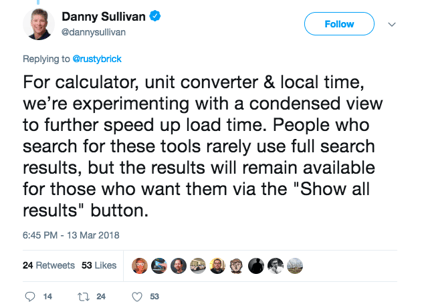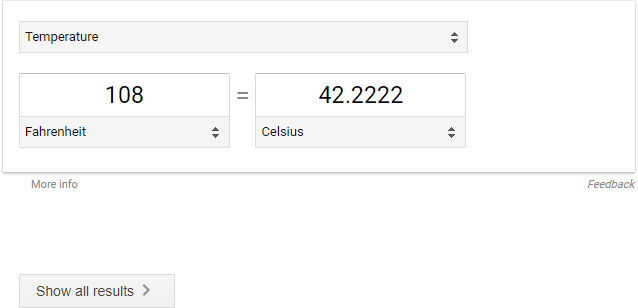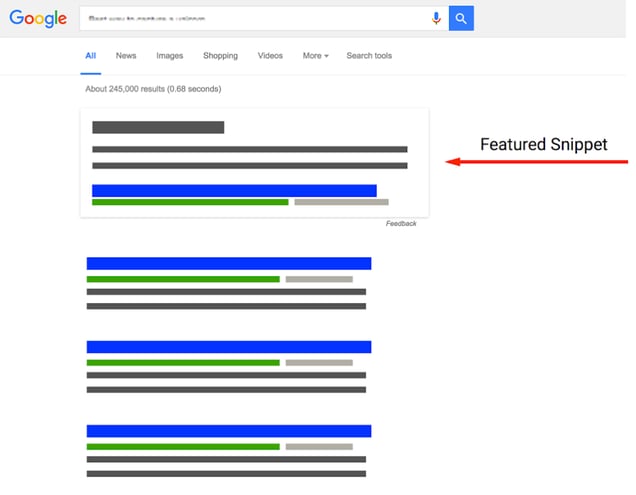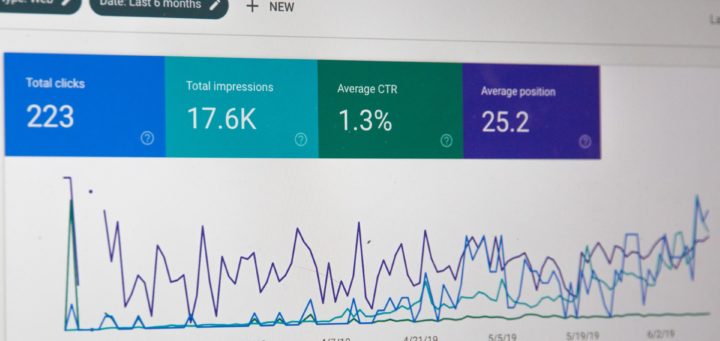As this was just an experiment, Google collected enough data after a week to stop it, and the SERPs have since gone back to “normal”….but not without raising some questions about zero-result SERPs and what they could mean for the future of search marketing.
Knowledge Cards & Snippets
During this experiment, “Knowledge Cards” took the place of organic results on the SERPs. Google’s Knowledge Graph is a program that gives users very direct information for certain types of queries; in this case, its data was used in Knowledge Cards for queries relating to calculator, unit converter and local time.

When users searched for a conversion between Fahrenheit and Celsius, for example, a Knowledge Card with only that information was displayed on the SERPs, with only an option to click a “show all results” button. A recent Moz article captured a screenshot:

Because these Knowledge Cards answer the specific query you were asking (in this case, what is the conversion to Celsius from Fahrenheit), they resolve any need for you to filter through any other organic search results.
You can see this in quite a few other examples of search engine query results: for example, when you search for a flight number, a status box will show you the departure and arrival airports, times, and if the flight has been delayed or is currently in the air. Searching for a new movie title will display listings for its next showing at theatres nearby. The same goes for weather forecasts, stock quotes, measurement conversions, etc., all with organic results getting pushed further down the page.
Similarly, featured snippet blocks includes a summary of the user’s query answer, extracted from a webpage, plus a link to the page, the page title and URL. A featured snippet will look something like this on the SERPs:

So the question becomes: if a user can find the most relevant information they are searching for in the snippet or Knowledge Card, will there still be a need for other organic listings to even be displayed?
Pros vs Cons
From Google’s perspective, we believe that there are some pros and cons with zero-result (or limited-result) SERPs. Let’s start with the pros:
- The use of mobile, voice-only devices, and the fast-paced world we live in today has made people impatient. When we want to know something, we want to know it now. Showing the most relevant result without having to filter through any organic listings can be much more convenient.
- Displaying limited results ultimately gives Google more control over the types of results that are being displayed.
- Since Google is powered by paid advertisements, these will always still show at the top of the organic SERPs. So if zero or limited result SERPs become a thing, more businesses might need to invest in a paid marketing strategy to remain at the top, which means more revenue for Google.
On the other hand, limited or zero-result SERPs do come with some major limitations for Google:
- As noted in the first sentence of this post, we as users have become used to the SERPs the way they are (with 10-results displayed on each SERP). Snapchat learned the hard way not to mess with what people are familiar with…
- It’s just not possible to display limited or zero result SERPs for every type of query out there. Sure, it’s handy to have a measuring conversion or a flight status available with a few quick taps, but how is Google going to have algorithms set up for every type of random question that we ask it day in and day out. For example, my recent history includes “what is bathtub tequila called” (I don’t even know why I searched for that: it’s called Raicilla…FYI). The majority of my Google queries cannot be easily answered with a quick and single result.
- As an offset to the #3 above, some businesses may not want or be able to invest in a paid marketing strategy just to show up on the Google SERPs. They may instead choose to take their business elsewhere (to other search engines, like Bing), or to Social Media or other marketing platforms.
In Summary
So, in summary, what did this little zero-result SERPs experiment mean? Is this the beginning of the end of organic search results? Based on what we’ve researched and understand, we don’t think so. It’s obvious that Google is investing in some improvements to their results pages, likely to the overall user experience, but there are definitely too many limitations that will restrict them from making a strict switch to zero-result SERPs in the near future.


